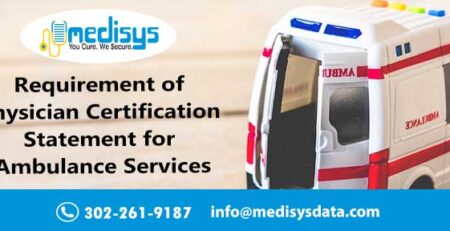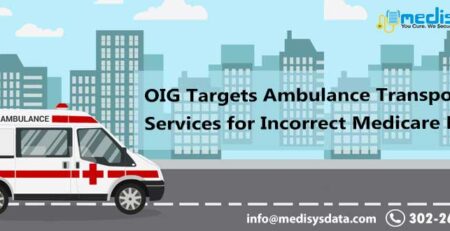The alterations between medical and ambulance coding are many. Not only are the procedure codes and documentation unique, but things that doctors and hospital coders take for granted do not apply in ambulance medical billing and coding.
Ambulance medical billing service presents a unique set of compliance challenges. The ambulance industry over the past few years has seen a critical rise in the number of false claims, fraud and irregular audit activity, along with the usual medical billing and coding error. It is vital that the ambulance medical coders and billing specialist fully understand the nuances of reimbursement to a successful business.
Here are some significant issues in ambulance billing and helpful advice to strengthen your overall ambulance billing cycle.
Check the medical necessity
The most important thing is for ambulance transportation service is to check the medical necessity which still continues to be the biggest compliance issue. Like any type of specialized medical service, ambulance transportation must meet the rules of medical necessity to get reimbursed. Nonetheless, when it comes to ambulance billing and coding, the medical necessity criteria seem to be unclear and less defined compared to other medical specialties.
The federal law medical necessity for ambulance transportation states that other means of transportation are challenged by the patient’s condition. The latest CMS regulations do present some added clarification, but the medical necessity standards for ambulance necessity are associated on whether the patient could safely be transported by other means.
Simply put, if a patient could safely be transported by car, a stretcher van, or any other available means, then keep in mind that the medical necessity is not met, and in such a scenario reimbursement can’t be made.
Advanced Life Support Billing
The second major compliance issue area in ambulance billing service is the high paying advanced life support (ALS) codes used in cases where lower reimbursed codes should be used. The ALS level of service can only be charged when the skills required to care for the patient surpass the scope of practice in that jurisdiction. Due to this, an ambulance medical biller must know what is the approved scope of practice or them in that jurisdiction, and what extra skills are required for that certification.
Train your staff
The most important part of ambulance transportation is to hands on with all the necessary medical billing codes. Ensure that all your billers are precisely trained in the specialized world of ambulance coding and billing. It is dangerous to assume that billing and coding knowledge of other specialties can be automatically applicable to ambulance billing services. Remember that ambulance transportation billing and coding has its unique twists and distinctiveness. So it’s necessary for the billers to receive specific training related to ambulance transportation in order to adhere all the billing compliance.











